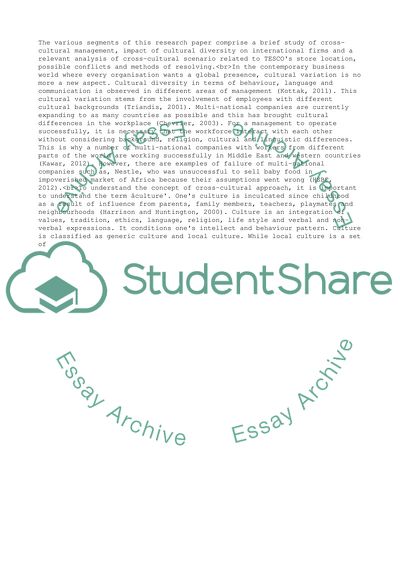Cite this document
(“Tesco in India Essay Example | Topics and Well Written Essays - 2000 words - 7”, n.d.)
Tesco in India Essay Example | Topics and Well Written Essays - 2000 words - 7. Retrieved from https://studentshare.org/management/1641810-tesco-in-india
Tesco in India Essay Example | Topics and Well Written Essays - 2000 words - 7. Retrieved from https://studentshare.org/management/1641810-tesco-in-india
(Tesco in India Essay Example | Topics and Well Written Essays - 2000 Words - 7)
Tesco in India Essay Example | Topics and Well Written Essays - 2000 Words - 7. https://studentshare.org/management/1641810-tesco-in-india.
Tesco in India Essay Example | Topics and Well Written Essays - 2000 Words - 7. https://studentshare.org/management/1641810-tesco-in-india.
“Tesco in India Essay Example | Topics and Well Written Essays - 2000 Words - 7”, n.d. https://studentshare.org/management/1641810-tesco-in-india.


